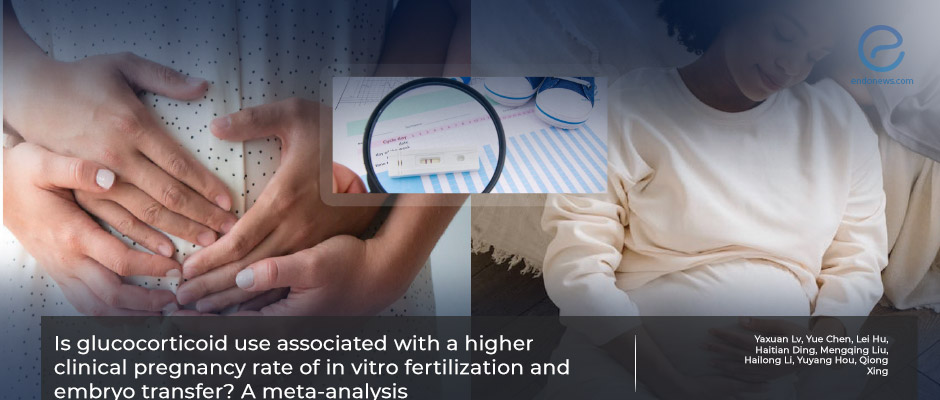The effect of glucocorticoid use on clinical pregnancy rates
Jun 8, 2023
Considering IVF-ET cycles, however, the literature results of glucocorticoid use did not differ in patients with endometriosis.
Key Points
Highlights:
- Glucocorticoid use in IVF-ET cycles will positively affect the clinical pregnancy rate.
- Glucocorticoids should be preferred in patients with positive autoantibodies and multiple failed IVF-ET cycles.
Importance:
- The inhibitory effect of glucocorticoids on the immune process may lead to healthy embryo implantation during transfer and suppress the immune diseases of infertile women.
What's done here:
- This is a meta-analysis aimed to investigate the association between glucocorticoid use and clinical pregnancy rate in IVF-ET patients.
- A detailed database search was conducted and eligible studies from PubMed, Web of Science, Embase, and Cochrane Libraries were selected.
- Appropriate statistical sensitivity analyses and multiple subgroup analyses also were performed.
- no statistically significant effect was found on the presence or absence of endometriosis.
Key Results:
- Seventeen studies, with more than 3000 IVF-ET cycles, were selected from the literature review.
- Because of the heterogeneity of overall meta-analyses among the studies, a forest plot displayed a combined effect estimation with a random effect model.
- The results indicated that glucocorticoid use was associated with a higher clinical pregnancy rate but did not affect the live-birth rate.
- There were no statistical differences when infertile patients compared to those with endometriosis.
- No changing effect on the main result was detected when other medications were added to glucocorticoids.
Lay Summary
The preference to use glucocorticoids such as dexamethasone, prednisone, and methylprednisolone, along with IVF-ET cycles is due to the diminishing inflammatory response and suppressing immunity. Thus, while autoimmune diseases are suppressed with glucocorticoid administration, the success rate in the implantation phase of IVF-ET cycles increases based on its effect on natural killer cells and cytokines.
Dr. Yaxuan et al. from the Department of Clinical Medicine at Anhui Medical University, Hefei, China, conducted a comprehensive meta-analysis using PRISMA guidelines after a literature search on glucocorticoid use and IVF-ET clinical pregnancy rate. Seventeen articles that met the inclusion criteria were selected from the literature, and statistical analyses were made. Their results were recently published in the scientific journal named Heliyon.
The essential result of the statistical analysis indicated that glucocorticoid use during IVF-ET cycles was associated with a higher clinical pregnancy rate. However, no statistically significant effect was found on the presence or absence of endometriosis.
The authors defended their study as this literature research included a large number of articles, and the statistical methods used were of high credit. They also added that results still needs to be verified by more high-quality and large sample-size randomized controlled trials.
In summary, they recommended using glucocorticoids, especially in multiple failed IVF-ET cycles.
Research Source: https://pubmed.ncbi.nlm.nih.gov/37215803/
systemic review meta-analyses glucocorticoid IVF-ET live-birth rate clinical pregnancy rate endometriosis.

